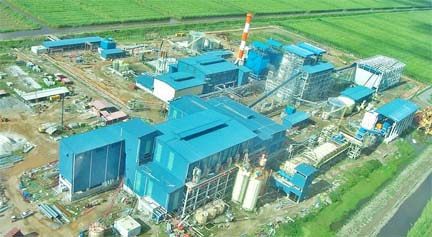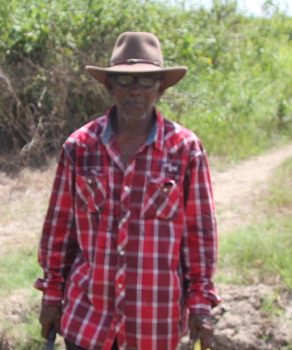There are unmistakable signs of jitteriness in the Coren-tyne business community. It extends across the business support organisations and into the businesses themselves. It has to do, almost entirely, with the perilous circumstances of the Guyana Sugar Corporation (GuySuCo) and what is now the virtual certainty that the Skeldon and Rose Hall factories will be closed.
It is easy to understand why the economic logic of making tough decisions about GuySuCo simply does not ‘wash’ in some communities. You have to be intimate with the industry and to be part of those communities whose fortunes it directly impacts to understand why, for some Guyanese, reconciliation with the closure of GuySuCo is a difficult pill to swallow.
When Stabroek Business visited areas of the Corentyne last week it was principally to listen to variants on the theme an economic slowdown….‘ business slow’, ‘business slow bad’, ‘not much happening’….it has been pretty much the same tune for several months. Tougher times are being seen as estate closures loom larger.

Peter Crawford, a No. 43 Village cattle farmer for more than 40 years is one of the purveyors of the sense of anxiety that hovers over the Corentyne. The fortunes of sugar, he says, are linked to every other conceivable sector of the Corentyne economy. In the halcyon days of sugar a day in the Port Mourant Market would yield returns from sales of around six hundred pounds of beef. These days, he says, sales can account for less than around one hundred pounds. The price on what remains has to be reduced and after patronage ceases altogether the remainder has to be given away. There are knock-on effects. Reduced investment in feed means that butchers are now rejecting cows on the grounds that they are too skinny. Crawford is sure that that would be the fate of many in his own stock. That means that after three years they will simply die natural deaths.


Crawford has six hundred head of cattle. He is one of the around forty farmers occupying Cookrite Savannah, located behind the Black Bush Polder. He lost about one hundred and eighty head of cattle during the rains and attendant floods earlier this year. He estimates his
financial loss at around 10 million dollars. These days he must move grass from one area to the next if he is to feed his cows.
President of the Central Corentyne Chamber of Commerce, Mohammed Raffik told Stabroek Business that the closure of the estates would have a dramatic economic impact on several communities. He estimates that around five thousand Corentyne workers could be displaced. The ripple effect is likely to be felt throughout the business community. Raffik himself is the owner of Raffik and Sons Construction Company, He too says that business is “slow.” Government, he explains, is the biggest spender in the construction industry though he says that most of his own contracts come from the private sector.
The Central Corentyne Chamber wants to see a “heavy dose” of state investment in Berbice. It is, its President says, the only initiative that will compensate for the closure of the estate estates. The investment option, Raffik says, will almost certainly have to be agriculture. “We do not have industries here in Berbice. Yes, we have oil and gas on the horizon but there is still need for food security, we still need to eat.” He further said that the government needs to invest in massive infrastructure.
Rice is an option though Raffik points out that the existing farmlands have become reduced in their yield on account of their two hundred-odd year service to the rice and sugar industries. The options may repose in citrus and a range of cash crops though attention will have to be paid to opening up the vast areas of virgin lands in Berbice though these must be supported by roads, drainage and irrigation. Raffik says that government’s support will also be anticipated in securing external markets for the expected yield.
Raffik, meanwhile, says that the Central Corentyne Chamber is desirous of sitting down with government to discuss “the way forward after sugar,” and, he adds, “the sooner the better.” There will, he says, be need for responses to challenges that will include the need to undertake re-training initiatives for displaced GuySuCo employees.
Stabroek Business, understands, meanwhile, that the Central Corentyne Chamber will be pinning much of their hopes on the success of the effort being made by one of the region’s most successful business enterprises, Nand Persaud & Company to acquire the inventory of the Skeldon estate. Raffik disclosed that he has also suggested to the Berbice rice magnate that consideration also be given to acquiring the assets of the Rose Hall estate. Here, the thinking would appear to be that there is still potential for the production of other commodities that include ethanol and fertilisers.





